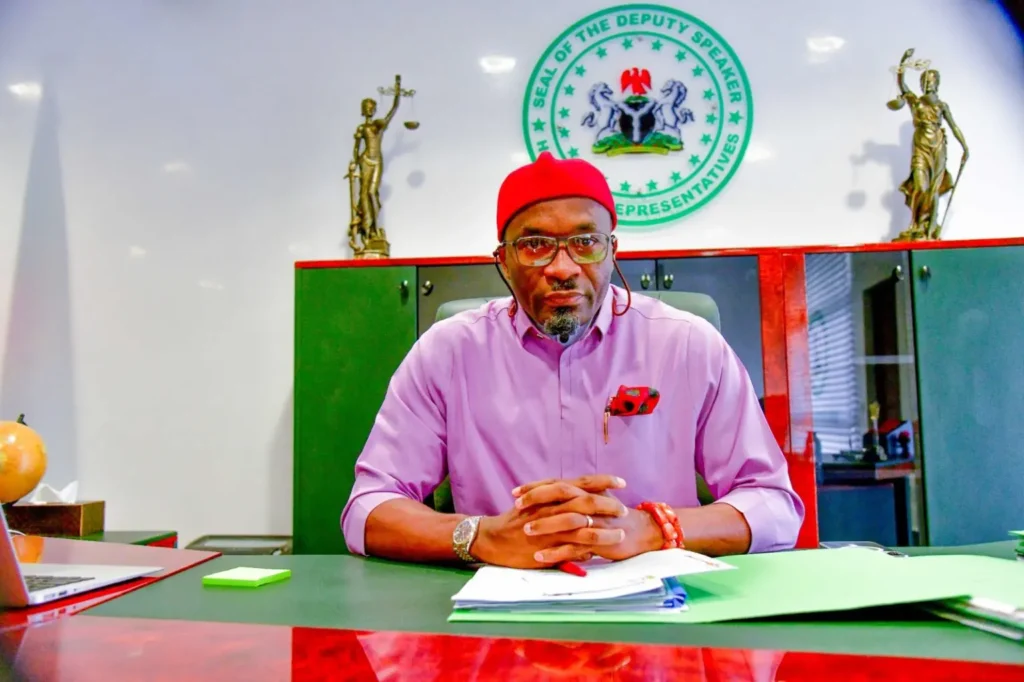
On August 12, a Joint Committee of the ECOWAS Parliament will convene a delocalized oversight meeting in Abidjan, Ivory Coast, under the direction of Deputy Speaker Benjamin Kalu of the Nigerian House of Representatives.
The week-long event, which includes the budget, public accounts, macroeconomic policy, administration, finance, and economic research standing committees of the parliament, will come to an end on Friday.
The theme of the event is: “The Role of the ECOWAS Parliament in Community Budget Formulation and Monitoring.”
The Joint Committee was established and given the responsibility of carrying out the crucial oversight tasks on the previously stipulated timelines as specified in the community policy.
The principal aim of the delocalized committee meeting is to equip its members with comprehensive knowledge and comprehension of the subjects under consideration, in order to facilitate parliamentary budgetary deliberations.
Additionally, as required by the Supplementary Act on the Enhancement of the Powers of the Parliament, it seeks to provide Members with the tools they need to oversee ECOWAS programs and operations.
It is anticipated that stakeholders and resource persons, primarily from the ECOWAS Commission’s relevant technical directorates, will educate the Joint Committee’s members on recent advancements in the sectors under consideration.
To provide lawmakers with a comprehensive understanding of the issues, speakers selected from pertinent organizations, such as organized civil society, will also address the Joint Committee.
The Committee on Administration, Finance, and Budget is in charge of overseeing the financial and administrative management of the parliament as well as issues pertaining to the adoption of the community budget and the examination of the Parliament’s yearly budget draft.
It is also in charge of evaluating the efficiency of different community funding methods, particularly the execution of the community levy protocol and the synchronization of diverse financial instruments.
The committee is also tasked with overseeing the execution of the Parliament’s budget and assessing the cost-effectiveness of putting Community-financed programs into action.
Its duties also include reviewing and presenting the parliament’s revenue and expenditures as well as the measures that support or carry out these decisions, and it is responsible for confirming the accounts and balance sheets related to these decisions.
There are fourteen Standing Committees and 115 seats in the ECOWAS Parliament. A minimum of five seats are guaranteed to each of the 15 member states.
The distribution of the final forty seats takes into account each nation’s population. The News Agency of Nigeria, or NAN, reports that Ghana has eight seats overall, whereas Nigeria has 35 seats. Burkina Faso, Guinea, Mali, Niger, and Senegal each have six seats, while Côte d’Ivoire is given seven.
Benin, Cape Verde, The Gambia, Guinea Bissau, Liberia, Sierra Leone, and Togo are the remaining ECOWAS members with five seats each.
